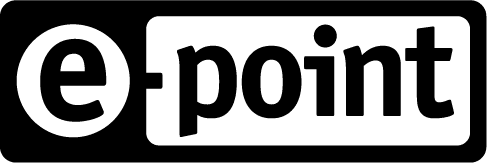An inside look at internships: starting your front-end dev career at e-point
Job interviews usually bring out the worst in me: high stress, trick questions, and the ever-popular and thorny issue of salary expectations make it an unpleasant experience, and I know I’m not the only one.
But when I applied for a junior position at e-point, the process looked completely different: an informal interview conducted in a friendly atmosphere, where live coding and practical problem solving were the important issues.
Now, I see interviews from the flip side: I’m part of the front-end development trainee recruitment team at e-point. So I’d like to share what the recruitment process looks like at e-point and how to best prepare for it.
What will you learn from this article?
- What e-point’s trainee recruiting process is like.
- How to prepare for an interview at e-point.
- What to put in your CV.
- What interns do at e-point.
- The kind of support e-point trainees can count on.
- What an intern’s e-point career path looks like.
Why internship is a good start to your career
An internship (or traineeship) is one of the best ways to kickstart your professional career. For three months (the usual length of an internship), you try out a career path and see if it is the right one for you. Seeing what IT work is like with real projects is a great learning experience.
At e-point, we treat everyone like a regular employee. From the very first day, trainees support teams working for real-life clients. There are no trial projects or code that’s written and then shoved into a drawer. An internship at e-point never means photocopying documents or making coffee (unless you want to make yourself a coffee :) ). It’s about real-world work.
“What I like most is that my tasks are for real-life commercial projects. I feel I have an impact on company projects, so I have more job satisfaction and motivation to work and learn. I can better integrate with more experienced team members. I’d say this is a big reason to apply at e-point!”.
Support from the start
Does this mean we throw our trainees in at the deep end, without any preparation? Not at all! First, we make sure all new team members get proper onboarding: clear instructions, a well-prepared work environment, support from a mentor, and the help of experienced colleagues.
Each e-point intern is assigned a mentor, whose role is to select tasks suited to the intern’s skills, introduce them to the project (frequently a major one), and – quite importantly – make sure they meet the other team members and learn how to win at table football (a.k.a. foosball).
How do we find candidates?
The internship recruitment process starts long before I join in. Before an interview can happen, we need to get applications from candidates. To draw applicants, we use our website (all current job offers can be found under the "Career" tab) and announcements on industry portals and social media.
We also do local events. Every year, we attend career fairs at the Warsaw University of Technology and the University of Warsaw. We also regularly hold e-point Academy lectures and workshops. We often meet our future employees in these places, and they can ask us questions about daily life at our company.
How your CV impacts your interview
Your CV’s layout and clarity are important, but its content is what really matters. A CV should summarize your experience to date, but what if you are just starting your career? In that case, tell us about your non-commercial projects like a semester paper (if it was a team project, we’ll know you can work on a team), tasks completed during a course or a bootcamp, or a website you built for fun, friends, or a charity. If you have code on GitHub, Bitbucket, or GitLab, tell us about it; this can prove you know version control systems.
If you have some experience, don’t be shy about mentioning it. It’s crucial to account for everything that could be relevant to your chosen career path. In our case, candidates who lack front-end experience can list any experience relating to IT in general – such as working for a helpdesk, with graphic design, or in UX.
During an interview, we'll want to ask questions about your projects. It's good to understand where the ideas came from, how the work proceeded, and how any problems were overcome. This lets us know about your work style and how you handle problems when they arise.
e-point’s technical and job interview process
All applicants for technical positions, including trainees, are asked to do an onsite technical interview. Naturally, the level of tasks is adjusted to the position under consideration. For front-end developers, a technical interview will cover key areas like HTML, CSS, SCSS, and JavaScript.
The job interview is, without any doubt, the most important and difficult part of the recruitment process. We usually start the interview by outlining our procedure; this takes away some of the nerves, as candidates know what to expect. We start with a non-technical section that’s conducted by an HR employee. This gives the candidate more information about the practical aspects of working at e-point, such as our office, our working hours, the kinds of projects we handle, and our interest guilds.
The second part of the interview is technical and is often attended by two front-end developers. The first thing we discuss is the experience set out in the candidate's CV. We also want to know why the candidate has chosen e-point. We briefly test the candidate’s knowledge of front-end dev terms, like SEO or RWD (acronyms are popular in our business, so candidates need to know them!) and some CSS terms, like the box model.
Live coding
Live coding tasks – like reconstructing a part of a website’s layout, optimizing it for desktop or mobile view, and adding some interactive JavaScript elements – are a crucial part of the technical interview. We’re not so much interested in a pixel-perfect layout as we are in seeing how someone organizes their work, what tools they use, and where and how efficiently they look for information.
Aside from purely technical skills, we value the ability of potential interns to cope with various situations – particularly stressful ones, like job interviews. We also greatly appreciate seeing candidates' communication skills, as these are vital for team cooperation.
“I really like the atmosphere at work, the friendly team, and the ease of consulting with experienced team members when tasks get more complex. I’ve learned about the methodology and have progressed in the current project implementation”.
Is an e-point internship right for you?
All new e-point employees attend a cycle of internal training courses during their first days at e-point. This is part of our onboarding process, which was awarded the top prize at the Pracuj Group’s HR Dream Team contest.
A traineeship is the first step to a career in front-end development. After their internships, some of our trainees stay with us in junior front-end developer roles. Subsequent career stages typically involve working as regular and senior front-end developers before finally reaching the post of front-end development expert. Each stage comes with new duties and challenges, and in no time our former trainee becomes a mentor for someone else who’s just starting in the industry.

